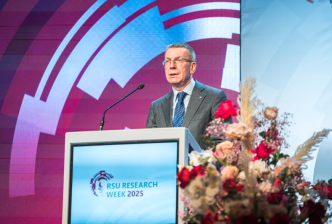
Romain Meeusen
Prof. Dr. em. Romain Meeusen (PhD) is former Vice-Rector Internationalisation and former head of the Human Physiology Research Group at the Vrije Universiteit Brussel. His research interest is focused on “Exercise and the Brain in Health & Disease” exploring the influence of neurotransmitters on human performance, training, rehabilitation. Recent work is on Overtraining, Thermoregulation, Neurogenesis, Cognition, Nutrition and the brain in health & disease. He teaches on exercise physiology. Romain published ca 550 articles, abstracts, and book chapters in peer-reviewed national and international journals, 21 books on sport physiotherapy, and gave lectures at more than 1000 national and international conferences (Web of Science (11-2024): 411 papers; H-index: 73; >20.000 citations). He is past President of the Belgian Society of Kinesiology, and the Belgian Federation of Sports Physiotherapy. He is former Board member of the European College of Sport Science ECSS (2000-2013), and of the American College of Sports Medicine (ACSM) (2010-2013). In 2006 he gave the ‘presidents lecture’ at the annual meeting of ACSM. In 2009 he received the Belgian ‘Francqui Chair’ at the Université Libre de Bruxelles on ‘Exercise and the Brain’. In 2017 he received an honorary Fellowship of the society for the promotion of Science in Japan. In 2019 he received the price for ‘Science communication’ of the Royal Flemisch Academy of Belgium for Science and the Arts together with the ‘Homo Roboticus team. He was holder of two named lecturing chairs (Lotto Cycling Chair) at the Vrije Universiteit Brussel (2010-2018), and the ‘LIROMS’ research Chair (2021-2025).
romain[pnkts]meeusen vub[pnkts]be (Email)
vub[pnkts]be (Email)
Presentation title "Is Exercise good for the Brain ?"
Human Physiology & sports Physical therapy Research Group, Vrije Universiteit Brussel, Belgium. Department of Sports, Recreation, Exercise and Sciences,Faculty of Community and Health Sciences; University of the Western Cape, South Africa.
Exercise has an powerful influence on the brain. It is now well established that exercise will have a positive effect on brain health. Physical exercise can preserve cognitive function in elderly populations, promote functional recovery after central nervous system (CNS) traumatic injury, and induce neurogenesis in the adult CNS. Physical exercise can preserve cognitive function in elderly populations, and will induce neurogenesis in the Central Nervous System at all ages. Physical activity also increases trophic factor production in select regions of the brain. Brain-derived neurotrophic factor (BDNF) is a crucial effector of experience-dependent plasticity. It is a neurotrophin that acts as a regulator of the survival, growth, and differentiation of neurons. Physical activity and, in particular, acute exercise and training seem to be key interventions to trigger the processes through which neurotrophins mediate energy metabolism and, in turn, neural plasticity and cognition. Different forms of exercise (endurance or resistance training) will trigger neurogenesis and improve cognitive performance through different mechanisms. When exercising in an environment where there is a danger of air pollution, it seems that the positive effect of exercise gets overruled by the negative influence of pollution on brain functioning.

